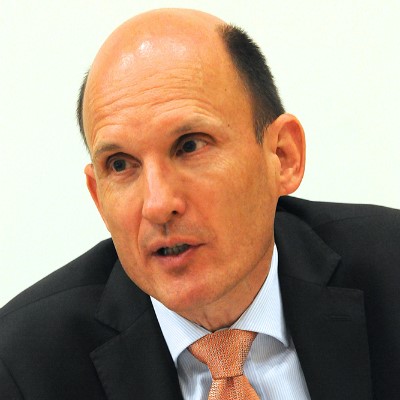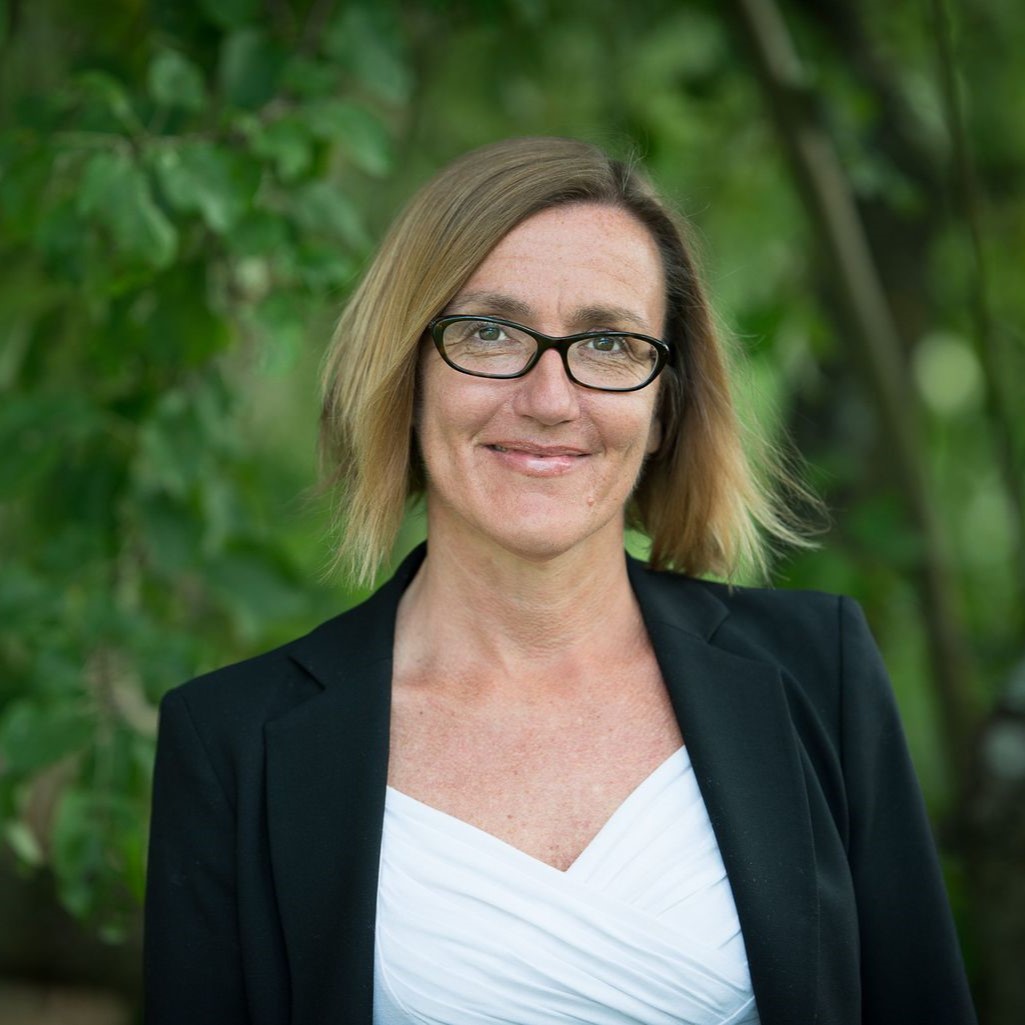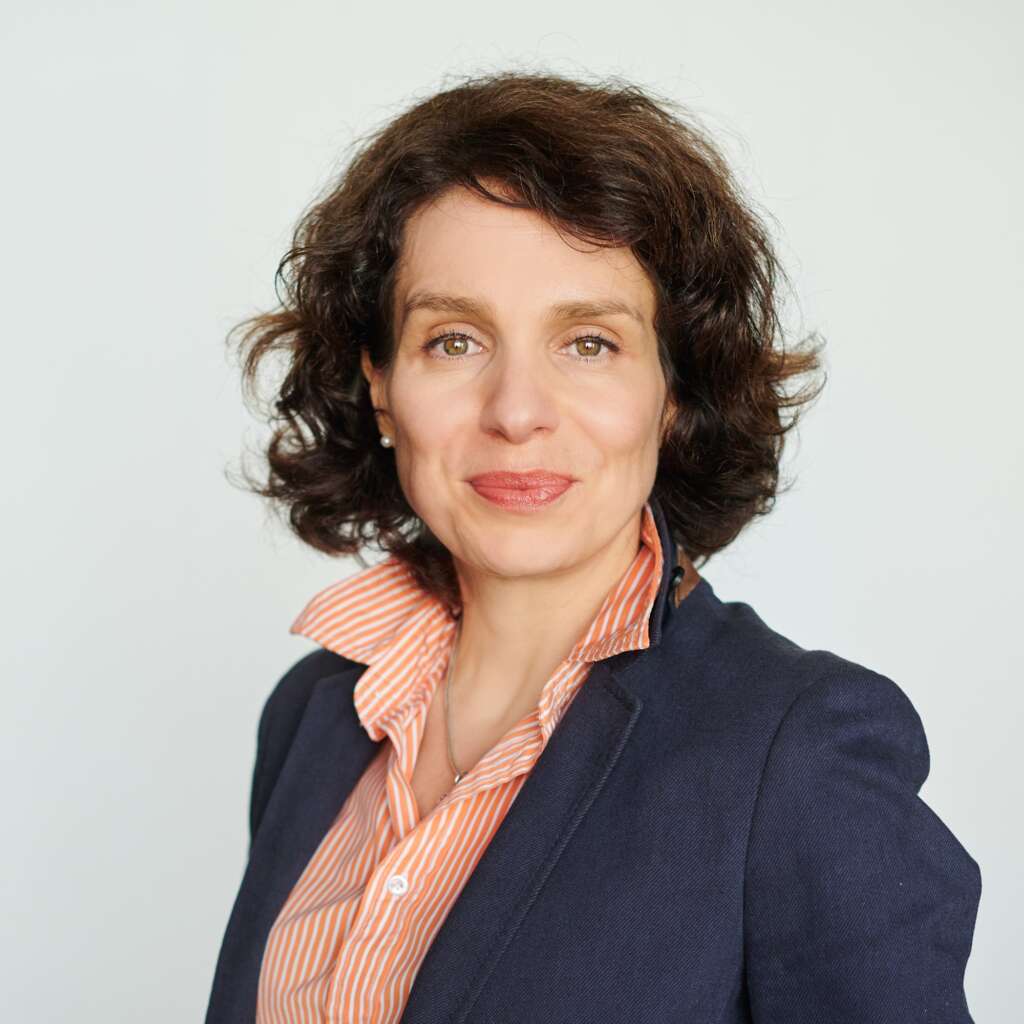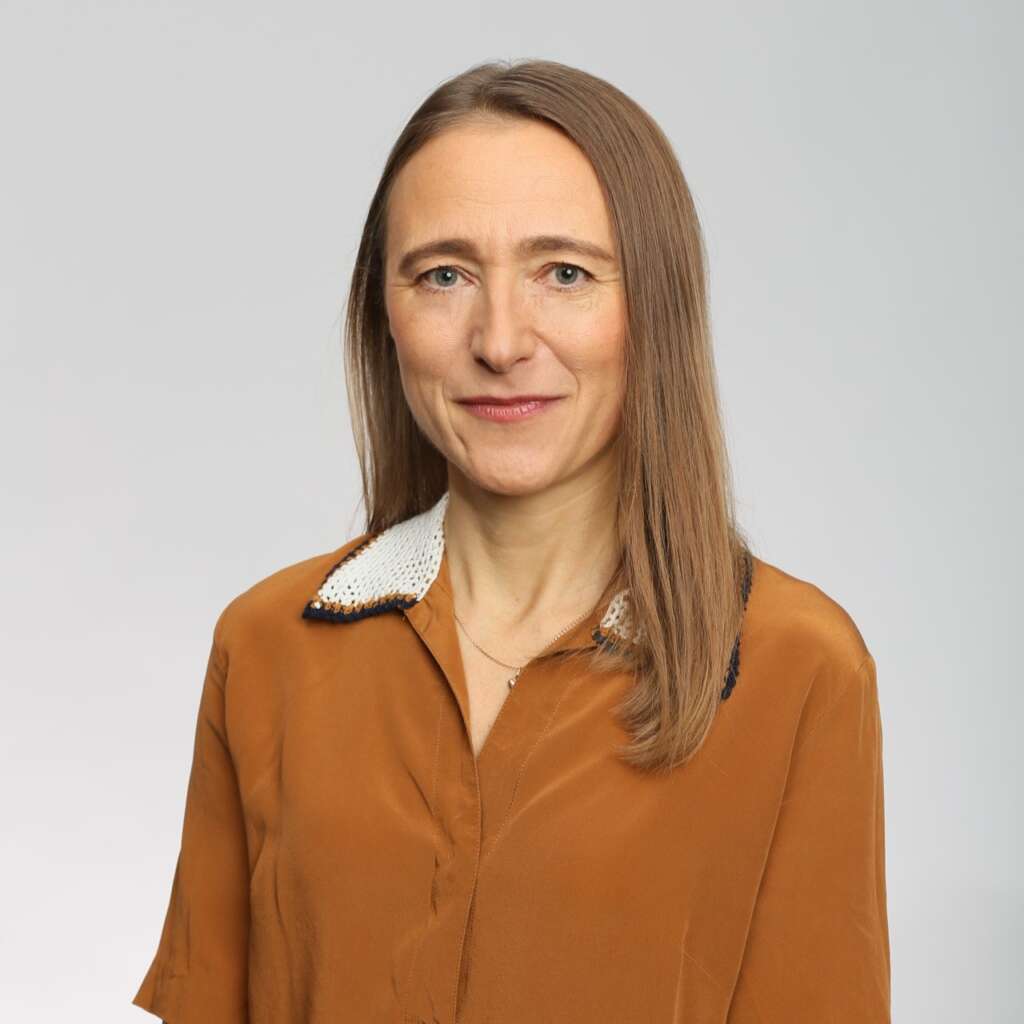Speakers & Panel Descriptions
Moderator

Anett Numa
Anett Numa, having lived and studied in different countries, has learned to appreciate the perks of living in a fully digital society. She believes that all processes and structures of public services should be accessible and simple for everyone. Based on her academic background in political science, she focuses on enhancing an excellent collaboration between the public and private sector to create a comprehensive and supportive environment. Besides this, she is now focusing on shaping cyber policies-building a substantial collaboration between different countries in countering and tackling cyber threats.
Additionally she runs her consulting business to help people to become an excellent public-speaker and happy to help moderate events to talk about digitization.
Keynote Speeches

Jan Kleijssen
Jan Kleijssen, Council of Europe’s Director of Information Society and Action against Crime, Directorate General Human Rights and Rule of Law, firmly believes in building a Europe without dividing lines, based on the shared values of Human Rights, Rule of Law and Democracy. He brings with him 37 years of accumulated institutional knowledge in all main sectors of the Council of Europe: Judicial, Parliamentary and Intergovernmental. Moreover, as Director of the Private Office, from 1999 until 2004, he was responsible for major reforms, political initiatives and crisis management.
Appointed in 2018 by the Secretary General, he led the work on proposals for the future of the Council of Europe following the Elsinore Ministerial Session. These served as a basis for decisions taken at the Ministerial Session in Helsinki in May 2019, celebrating the 70th Anniversary of the Council of Europe.

Oyidiya Oji
Oyidiya Oji is the Policy and Advocacy Advisor for Digital Rights at ENAR, the European Network Against Racism. She focuses her work on the AI Act developments and advocates for the implementation of rights-based and inclusive principles. She serves to defend a transversal and sustainable relationship with EU institutions with a racial equality lens. Previously, she researched and mapped projects of resistance and reappropriation of technology, with a special attention to AI.

Dr David Reichel
Dr David Reichel is a project manager in the Data and Digital Sector at the European Union Agency for Fundamental Rights (FRA). He is responsible for managing FRA’s research on artificial intelligence and on online content moderation, resulting in several reports, such as FRA’s report on artificial intelligence and fundamental rights ‘Getting the future right’ and the most recent report on ‘Bias in algorithms’. Prior to joining FRA in 2014, he worked for several years at the International Centre for Migration Policy Development (ICMPD). In addition, he has been teaching several university courses on human rights, migration and research methodology. He has published numerous articles, working papers and book chapters on issues related to human rights, migration and citizenship.
Other speakers

Jaan Tallinn
Jaan Tallinn is a founding engineer of Skype and Kazaa. He is a co-founder of the Cambridge Centre for the Study of Existential Risk (cser.org), the Future of Life Institute (futureoflife.org), and philanthropically supports other existential risk research organisations. Jaan is on the Board of Sponsors of the Bulletin of the Atomic Scientists (thebulletin.org), and has served on the High-Level Expert Group on AI at the European Commission, as well as on the Estonian President’s Academic Advisory Board. He is also an active angel investor, a partner at Ambient Sound Investments (asi.ee), and a former investor director of the AI company DeepMind (deepmind.com).

Dr Katrin Nyman-Metcalf
Katrin Nyman Metcalf is Adjunct Professor of Communications Law, Tallinn University of Technology, Estonia. In addition, she is active globally – for more than 20 years – as a consultant on legal issues related to information and communication technologies (ICT) and various digital matters including cyber security, e-governance, human rights in the digital environment like freedom of expression online and data protection, plus in addition all issues related to outer space law. She has worked in more than 50 countries including post-conflict and developing states.
She is Senior Legal Expert at the Estonian e-Governance Academy and Chairman of the Supervisory Board of the Estonian Human Rights Centre. Professor Nyman Metcalf is frequently invited as guest lecturer, speaker or moderator at high-level conferences in her various fields. Her PhD (1999) on the law of outer space is from Uppsala University, Sweden. Professor Nyman Metcalf has published extensively on issues related to law and technology (including space law) and human rights (specifically in the digital environment), and on regional integration, especially focusing on integration in other regions than Europe.
Panel 1: Human values within AI, ethics and regulations
Moderated by Dr Paloma Krõõt Tupay
This panel is focused on the interlink between AI and ethics and regulations, touching upon law but also examples and cases of both violations and good practices. We will also discuss the potential AI could bring to society, what are the thresholds and challenges for that, and where should we draw the line?
- How much can we trust AI in critical processes?
- How does it affect human rights and fundamental freedoms?
- Will AI ever be humane enough or could it overcome the social biases, for example?
We will discuss questions related to transparency and explainability of AI, but also looking back as well as ahead of the development of AI.
Speakers:

Dr Paloma Krõõt Tupay
Paloma Krõõt Tupay teaches constitutional law at the University of Tartu in Estonia. In addition to questions of democratic state architecture, she focuses her research activities on issues of data protection, e-government and digital constitutionalism. She has co-authored several legal evaluations on questions of possibilities for the use of machine learning in e-government and been part of a study on the impact of AI and big data on the fundamental rights in the EU requested by the European Union Agency for Fundamental Rights. In January 2023, Spinger is publishing “Artificial Intelligence and Machine Learning Powered Public Service Delivery in Estonia. Opportunities and Legal Challenges”, a book she has coauthored with prof Martin Ebers.

Dr Orsolya Reich
Dr Orsolya Reich is working on protecting our fundamental rights in Europe in the digital age. In the last couple of years, she has been leading research and advocacy projects related to Europe’s technological response to the pandemic. Currently, she is working on projects related to Europe’s newly adopted Digital Services Act, the still negotiated-on AI Act, and the so-called chat control file. She also writes reports about the shrinking civic space in Eastern and Central European countries. Before embarking on a human rights career, Orsolya has been teaching ethics and political philosophy at various universities, including Princeton University.

Elvīra Krēķe
Elvīra Krēķe is the CEO of Legally, former Business Development manager for Nordics and Central Europe at DeepOpinion.ai, Ambassador for Latvia at European Legal Tech Association and Co-founder of LegalHackers Riga and Latvia Country Manager at HUGO.legal. With an obtained LL.M. in International and European law, she has chosen to put her focus towards Intelligent document and text automation, AI and business process automation, data protection and legal technology. Named as Forbes 30 under 30 in 2019 and 2022 in Latvia, Elvira strongly believes in technology to help businesses increase efficiency and decrease costs, and thus advocates and helps startups and businesses to incorporate the aforementioned practices in their everyday lives.

Merili Koppel
Merili Koppel is a lawyer at the Estonian Data Protection Inspectorate. She therefore has great insight of the biggest concerns data subjects have regarding their personal data being processed, but also of the value personal data holds for different companies, institutions and the way it lays ground for innovation. Merili is mainly specialized in the fields of insurance and financial data protection. She is also a member of the financial matters expert subgroup at the European Data Protection Board, which is responsible for consistent application of data protection rules throughout the European Union.

Sara Polak
Sara Polak is originally an archaeologist and cognitive evolutionary anthropologist. For the past decade, she has been working in startups in the UK and US, mainly focusing on artificial intelligence. Since the start of the COVID pandemic, she has been focusing on educating the general public in digital literacy and demystifying artificial intelligence and demonstrating its usefulness in the 21st century as well as the need for understanding it in multidisciplinary context. For these efforts she was awarded the #Forbes30Under30 and Innovator of the Year 2022. She freshly started a new research group called CCHAOS, focused on studying complex social systems (essentially why society forms and behaves the way it does), the phenomenon of cloud civilizations and understanding/modelling social interactions and evolution using VR and AI. Sara is currently writing a book on memes and history, is a big fan of Monty Python and Wikipedia.

Florian Marcus
Florian Marcus is a Project Manager at the digital society consultancy firm Proud Engineers. He has thus far supported governments from over 80 countries through a combination of analytical papers and workshops on political, legal, and other structural changes to build digital societies. Florian’s interests range from data protection mechanisms to UX/UI. He holds two Master’s Degrees including one in Politics and Security from University College London.
Panel 2: AI and Security
Moderated by Dr Anna-Maria Osula
This panel is focused on the interlink between AI and Security with regards to cybersecurity, war, refugees and humanitarian aid.
- What are the biggest improvements that AI has brought in security?
- Potentials and threats related to the use of AI and autonomy in armed conflict. What does this all mean in the context of our fundamental rights and freedoms?
- Could AI be used to prevent casualties of war? Which threats AI poses in the context of war?
- Will AI have a positive or negative impact on overall cyberwarfare?
- In the context of war in Ukraine, what is the role of AI, in cyber offense or defense, or on international bodies on addressing humanitarian needs?
- What is the experience of refugees with AI (e.g with relocation algorithms)?
With examples from the war between Russia and Ukraine, what role AI plays in war, cyber offense or defense, or on international bodies on addressing humanitarian needs?
Speakers:

Dr Anna-Maria Osula
Dr Anna-Maria Osula is currently working at the Estonian Ministry of Foreign Affairs in the Department of Digital and Cyber Diplomacy. She is also serving as a senior researcher at Tallinn University of Technology where her research focuses on cyber diplomacy and international law applicable to cyber operations. Previously, Anna-Maria worked at Guardtime as a senior policy officer, and before that as a legal researcher at the NATO CCDCOE, undertaking projects on national cyber security strategies, international organisations, international criminal cooperation and norms. In addition to a PhD in law from the University of Tartu, she holds an LLM degree in IT law from Stockholm University.

Piret Pernik
Piret Pernik is a Researcher at the Strategy Branch of the CCDCOE. Her main research interests are cybersecurity strategies and policies, cyber defence and military cyber forces, as well as emerging and disruptive technologies, She has published work in academic peer-reviewed journals, authored book chapters, and written comprehensive research reports, as well as shorter commentary and articles. She is an editor of the CCDCOE’s volume “Cyberspace Strategic Outlook 2030: Horizon Scanning and Analysis” published in 2022, and a co-editor of the “Cyber Threats and NATO 2030: Horizon Scanning and Analysis”, published in 2020.
Before joining the CCDCOE, Pernik was a Research Fellow at the International Centre for Security and Defence (ICDS) and a Researcher at the Estonian Academy of Social Sciences. Her career includes several positions at the Estonian Ministry of Defence since early 2000s and she served in 2009-2012 as an adviser of the National Defence Committee of the Parliament of Estonia.

Dr David Reichel
Dr David Reichel is a project manager in the Data and Digital Sector at the European Union Agency for Fundamental Rights (FRA). He is responsible for managing FRA’s research on artificial intelligence and on online content moderation, resulting in several reports, such as FRA’s report on artificial intelligence and fundamental rights ‘Getting the future right’ and the most recent report on ‘Bias in algorithms’. Prior to joining FRA in 2014, he worked for several years at the International Centre for Migration Policy Development (ICMPD). In addition, he has been teaching several university courses on human rights, migration and research methodology. He has published numerous articles, working papers and book chapters on issues related to human rights, migration and citizenship.

Lauri Almann
Lauri Almann is a Co-Founder and the Chairman of the Supervisory Board of CybExer Technologies, a deep tech cyber range technology company. He has managed and contributed to a number of complex cyber security exercises around the world, including 3 exercises for EU Presidencies, also for European Defence Agency, NATO CCDCoE and national strategic decision-making exercises around the world.
From 2004 – 2008 Mr. Almann served as the Permanent Secretary of the Estonian Ministry of Defence. He oversaw the overall management of the Ministry as the most senior civil servant. Previously, he has served as the Legal Adviser to the Ministry of Defence, Special Adviser to the Minister of Defence. He was a member of the Government Delegation for the Estonia’s accession talks with NATO. He has also served as a diplomat in Brussels, Belgium; St.Petersburg, Russia and Kiev, Ukraine.
He holds master’s degree (with distinction) in International Law from Georgetown University where he studied as a Fulbright Scholar and he is admitted to the New York State Bar.

Tayfun Kasapoglu
Tayfun Kasapoglu is a postdoctoral researcher at the Ragnar Nurkse Department of Innovation and Governance at Tallinn University of Technology. His main research interest lies in critical data studies. His studies focus on perspectives of data subjects that are more likely to be the targets of datafied governance procedures. His current research deals with predictive policing and how different social groups perceive it.